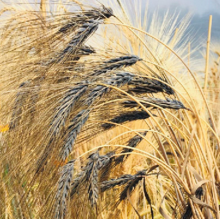A multi-million pound programme of strategic research delivered over five years providing science and evidence to support policymakers and its partners. Informed by strong partnerships and the needs of a broad range of stakeholders. Science at the heart of society contributing to the health, wealth and wellbeing of Scotland and beyond.
You are here
Research
Ongoing research (2022-2027)

This project evaluates whether whole grain phytochemical-rich barley accessions developed from ancient grain (for improved climate credentials) can produce a significant change in blood sugar levels to complement the established lipid lowering health claims related to barley β-glucan. This project supports new food and drink market opportunities and promotes barley as a healthy and sustainable crop.
- Human Nutrition
- 2022-2027
This project observes ‘living lab’ case studies in rural and island Scotland with a focus on dominant industries analysed through an innovative blend of micro- and macroeconomic concepts and methodologies to map an understanding of circular economy drivers and barriers such as behaviours (willingness) and socio-economic capacity i.e., technologies and green skills (readiness) under alternative scenarios depicting regional circular economy paths.
- Circular Economy & Waste
- 2022-2027
Effective business relationships in vertical supply chains are thought to: (a) reduce uncertainty (b) improve access to crucial resources and ⁄or (c) raise business productivity. This project aims to review the status-quo of collaboration and engagement between various stages of Scotland’s food and drink supply chain; to identify those points under acute pressure in the wake of recent shocks and recognising their strengths and weaknesses; and to identify means by which collaboration can be enhanced.
- Food & Drink Improvements
- 2022-2027
Use of precision livestock farming tools is increasing globally. When exploited fully, these can aid farm-level management, improve animal health, welfare and productivity, monitor or reduce emissions, and improve traceability. This project explores current and new digital innovations, key barriers to adoption and solutions, and provide a robust evidence base demonstrating benefits of integrated data use within beef, sheep and dairy systems.
- Livestock Improvement
- 2022-2027
The consumer has a right to know what is contained within the food they eat. Allied to this, there is a significant risk in the food supply chain of fraud where a food is replaced by a cheaper or inferior alternative. This project will develop mass spectrometry-based approaches for determining the provenance of food and beverages. We are developing methods for determining the composition of whisky and meats to ensure their integrity.
- Diet & Food Safety
- 2022-2027
This project investigates how behaviour change at the individual, household and organisational level creates challenges and opportunities for moving to a more circular economy.
- Circular Economy & Waste
- 2022-2027
To maintain and improve animal welfare despite the UK's EU Exit, we will analyse how lower welfare standards from importing countries could impact farm sustainability, provide evidence on welfare issues relating to relevant standards, inform welfare aspects of CAP replacement, and develop welfare assessment methods (informed by emerging international standards). A selection of topical case studies will be produced and guided by policy developments.
- Animal Welfare
- 2022-2027
Mycotoxins are toxic fungal contaminants which are often found in cereal foods. This project addressees an important food safety issue, the contamination of cereal foods with mycotoxins which are produced by fungi in agricultural production. This project aims to minimize the risk to consumers from mycotoxin contamination in cereal foods by improving our understanding of the sources of contamination in primary cereal production and processing and by assessing human exposure and risk through biomarker analysis.
- Food & Drink Improvements
- 2022-2027
We are working with Holstein cows from representative genetic lines and typical feeding systems to investigate relationships between milk production, efficiency and the ability to withstand the effects of climate change on feed supply and composition. We are developing new measures of feed variability, describe it for typical feeding systems and investigate effects on milk production and cow health. This is done with diets designed to reduce C footprints. Our aim is to develop optimal breeding and management strategies for climate smart production, climate resilience and enhanced...
- Livestock Improvement
- 2022-2027
This project is providing evidence for understanding factors leading to demonstrable change in innovation and investment in Scottish food supply chains, in particular the role of policy and government support through (1) mapping and (2) ranking incentives to innovation uptake by their effectiveness; and (3) developing models of support to innovation uptake at supply chain level feeding into an innovation uptake incentive framework at sectoral level.
- Food Supply & Security
- 2022-2027